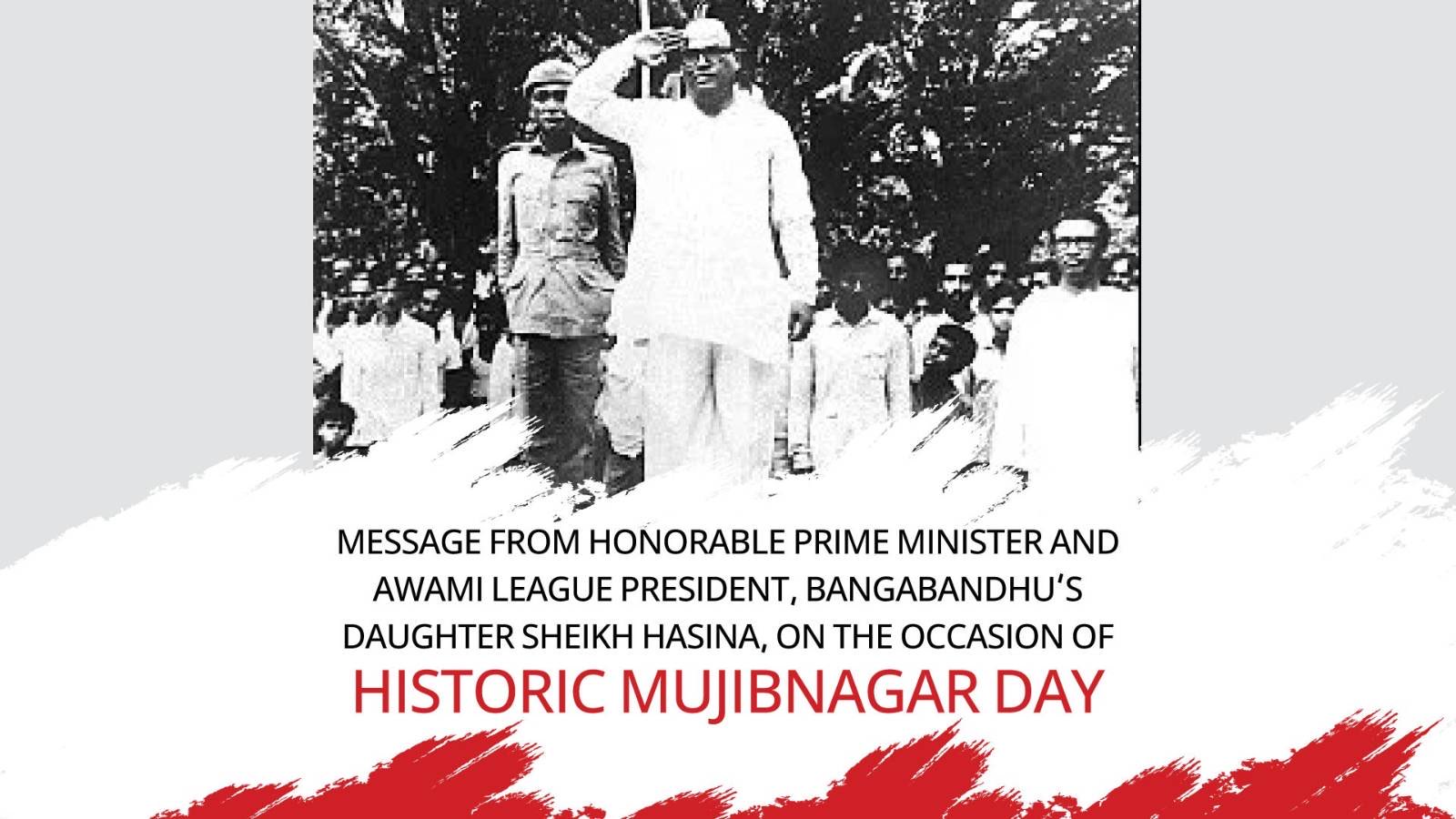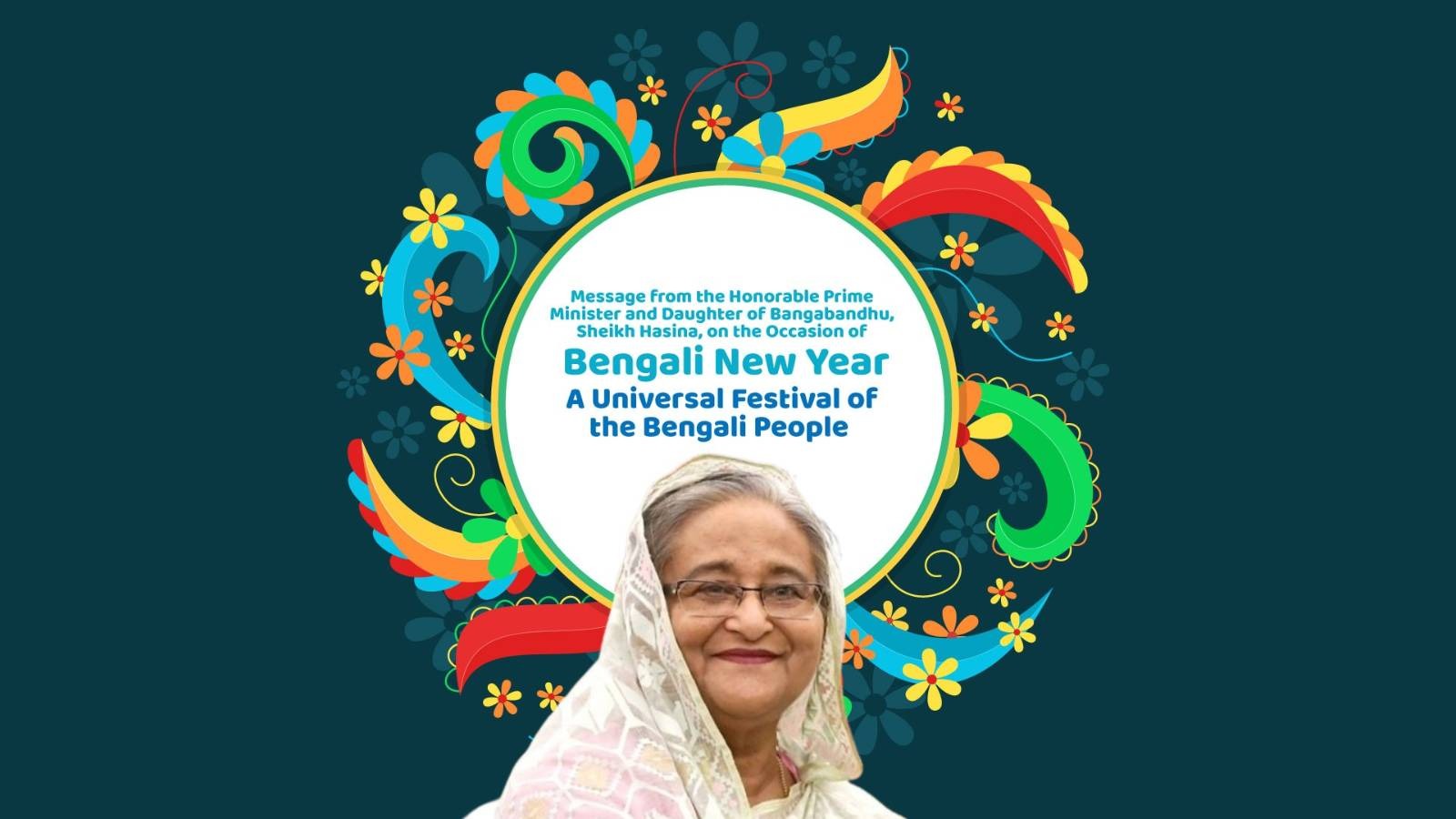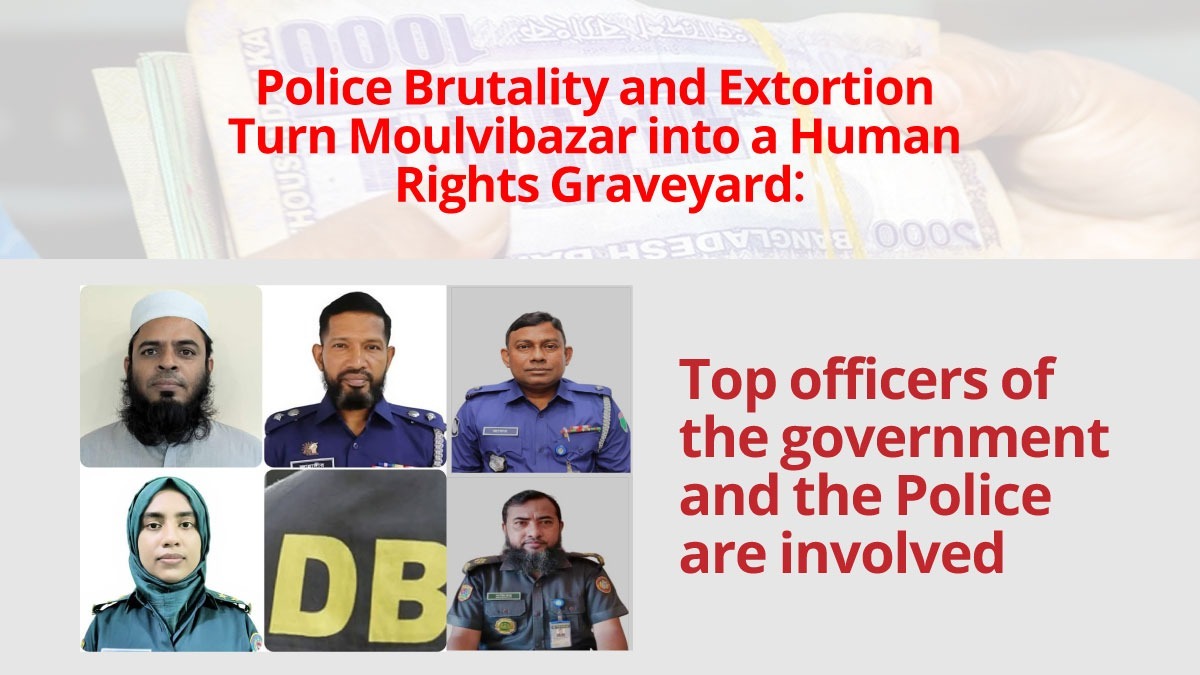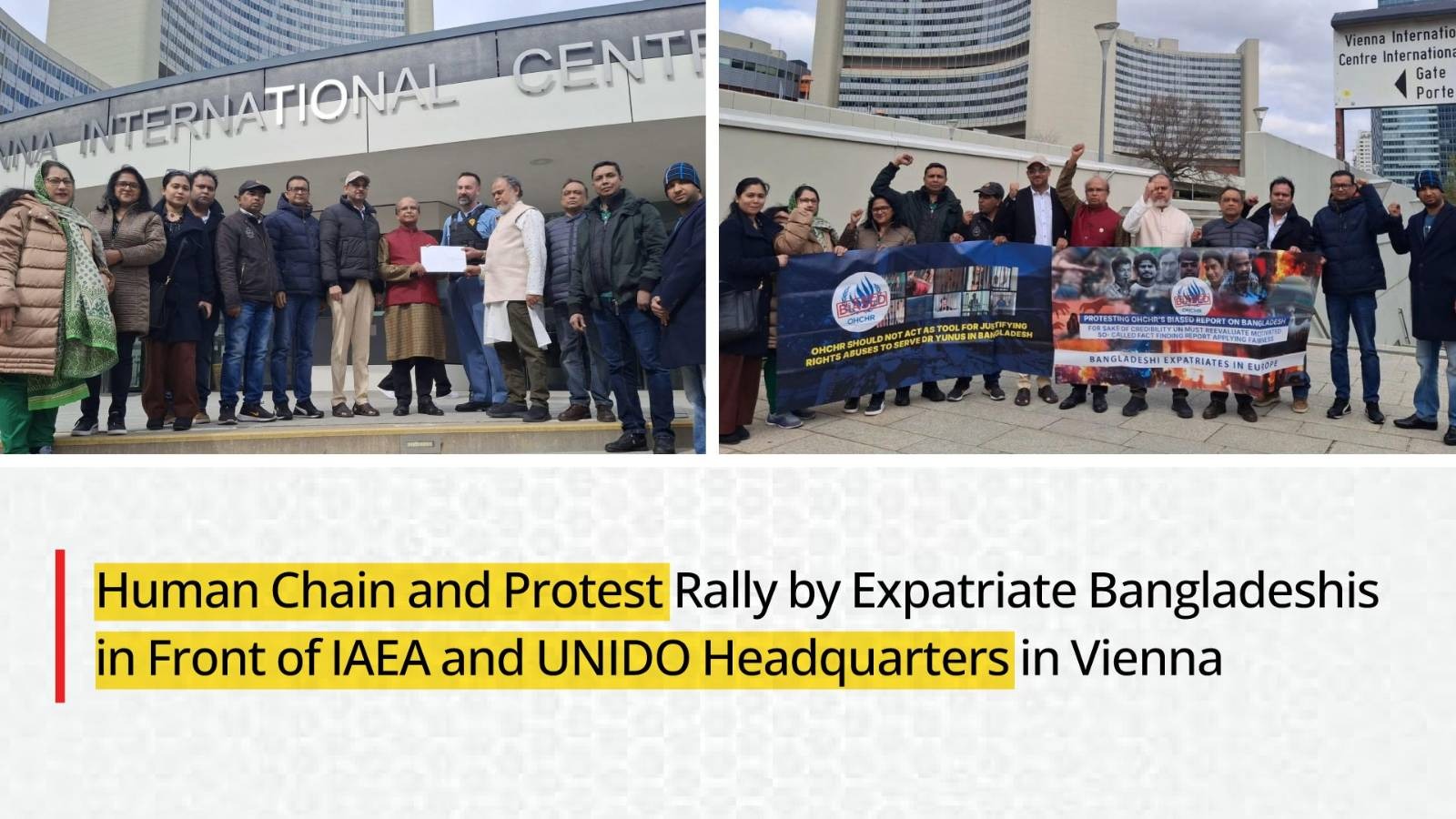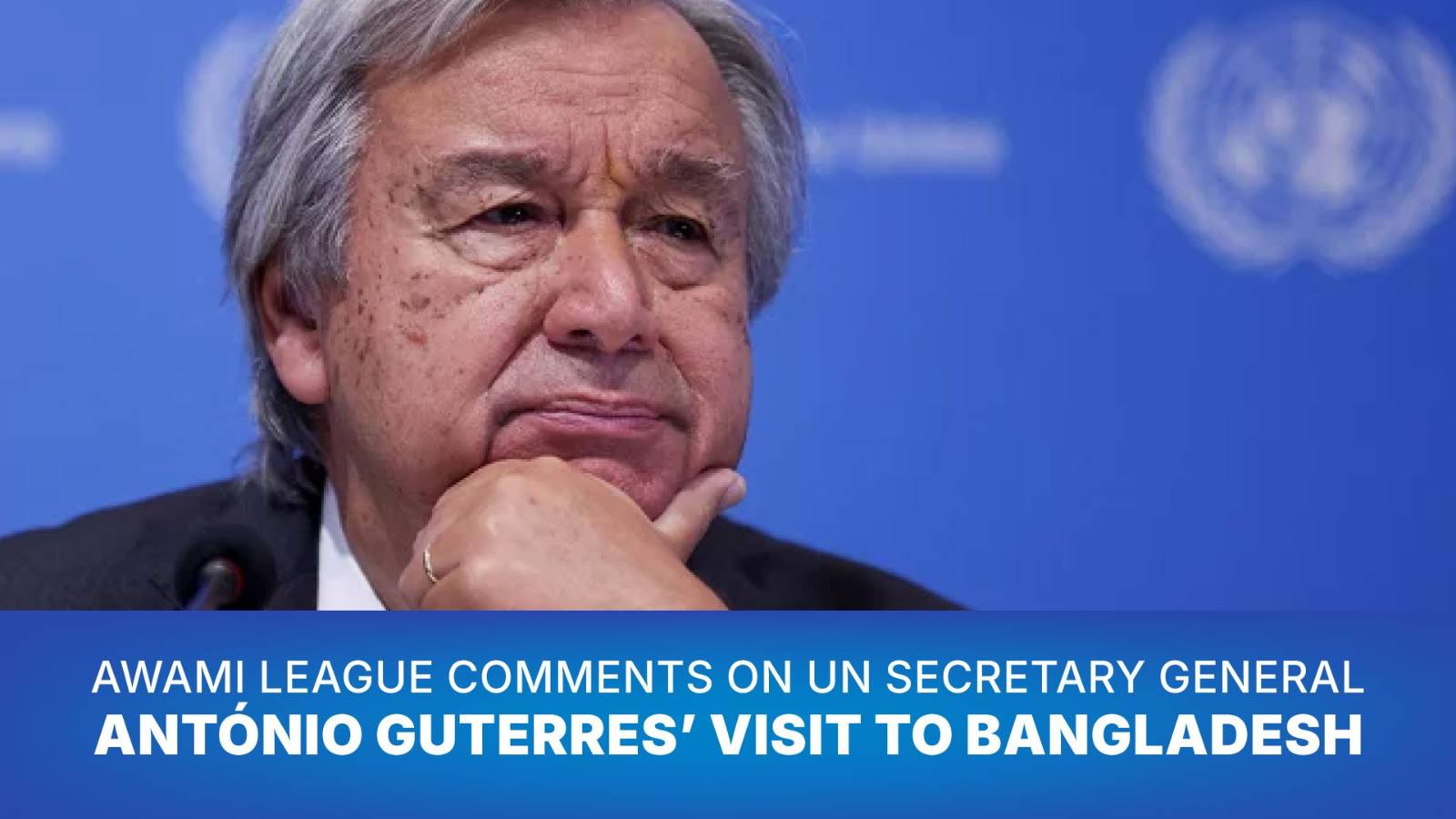3193
Published on December 9, 2022Bangabandhu Sheikh Mujibur Rahman’s magical and legendary leadership freed the Bengali nation from the shackles of repression and injustice through the Liberation War. He gave birth to Bangladesh as a heroic nation on the world map.
But, BNP has been creating confusion and fear among ordinary people by regularly distorting the history of the great Liberation War and doing activities against the spirit of independence. This party is very reluctant to acknowledge the sacrifice of 3 million martyrs and the dishonour of 4 million mothers and sisters. But why? Why do they always resort to various tricks to ignore the greatest victory of the Bengali nation?
If you notice as a conscious citizen, you see that the BNP is reluctant to celebrate the history and victory of Bangladesh’s Liberation War, rather tries to divert people from learning the true history. They even tried their best to create sabotage and destabilize the country through communal incitement during the year-long Golden Jubilee celebrations of independence.
Apart from this, they sometimes distort the history of the Liberation War to mislead people. For instance, during the national celebration of the 50th anniversary of Bangabandhu's historic speech on March 7, BNP announced to celebrate it in 2021, saying Ziaur Rahman as the proclaimer of independence in its program. But Ziaur Rahman has nothing to do with March 7. But why do they distort history about the Liberation War? What is the reason for this unethical behaviour, hypocrisy and inferiority complex of the BNP? Do they want to cover up their anti-independence and anti-Bangladesh position?
Formation of BNP with anti-Bangladesh clique and persecution of freedom fighters:
The main problem lies in the birth and activities of BNP. After the brutal killing of Bangabandhu Sheikh Mujibur Rahman and his family in 1975, the army chief General Ziaur Rahman formed the BNP in the cantonment, along with the anti-independence forces. Ziaur Rahman repealed the Collaborators Order formed by Bangabandhu in 1972 for the trial of war criminals involved in murder, rape and looting. Zia also freed 11,000 convicted war criminals from prison. In 1978, the razakars’ kingpin Ghulam Azam returned to Bangladesh with a Pakistani passport at Zia's call.
Bangabandhu cancelled the registration of anti-liberation communal and extremist parties and revoked the voting rights of convicted collaborators. But Ziaur Rahman abrogated Article 38 and Article 122 of the Constitution and once again opened the way for extremist communal politics and allowed collaborators to become voters. As a result, the convicted razakars, Al-Badr, and Al-Shams forces involved in crimes against humanity, were rehabilitated.
Dictator Ziaur Rahman wanted to change the red-green flag that the Bengali nation achieved in return for the blood of three million martyrs in the Liberation War. He hoisted a national flag on Victory Day on December 16 in 1978. But as protests erupted across the country, the plot failed.
BNP founder, General Zia strengthened the hands of the anti-independence forces by killing hundreds of freedom fighters in the army.
Ziaur Rahman rehabilitated anti-independence, extremists and razakars in politics:
Out of 300 candidates in the staged elections in 1979, Ziaur Rahman nominated 250 people who were identified as accused and convicted as anti-independence. BNP chief Ziaur Rahman appointed razakar Shah Azizur Rahman as the prime minister. Azizur was the traitor who went to the United Nations to oppose the independence of Bangladesh in November 197. He also changed the name of 'Bangla language' to 'Bangladeshi language' in the parliament as the foundation of Bangladesh was mainly based on this Bengali language movement. Thus, the anti-liberation ring wanted to change the name of our language. Ziaur Rahman even banned the main slogan of the Bengali Liberation War, 'Joy Bangla', and the historic March 7 speech of Bangabandhu.
Another notorious razakar, Mashiur Rahman Jadu Mia, was made a senior minister with the rank of chief minister. Bangabandhu's government tried Jadu Mia under Collaborators Tribunal and sentenced him to prison for collaborating with Pakistani forces in the killing of Bengalis. But on August 24, 1975, Zia, as the army chief, released him from jail.
Among Zia's other ministers, Khondakar Abdul Hamid was involved in the killing of intellectuals, Shamsul Huda Chaudhury used to broadcast programs on Pakistan Radio opposing the Liberation War, Abdul Alim massacred minorities in Jaipurhat, Mirza Ghulam Hafiz opposed independence by publicly calling the Liberation War a conspiracy, and Abdur Rahman Biswas took a stand against the Liberation War. As such anti-liberation people became the ministers of Ziaur Rahman's cabinet, communal extremism gripped the whole country.
Khaleda Zia's rehabilitation project and dedication to the murderers, and rapists of ‘71:
Later, BNP chairperson Khaleda Zia walked through the footstep of her husband Ziaur Rahman, by establishing the murderers, rapists and razakars of 1971 on the soil of Bengal. Khaleda Zia appointed razakar Abdur Rahman Biswas, who was enlisted in 1991, to the post of President and granted Bangladeshi citizenship to Ghulam Azam. BNP chairperson Khaleda framed charges against the martyr’s mother Jahanara Imam and freedom fighters for protesting this incident.
After the formation of the government again in 2001, she appointed the two commanders of Al-Badr and Al-Shams forces, Motiur Rahman Nizami and Ali Ahsan Mojaheed to the cabinet. After getting down from the car carrying the Bangladesh flag, Mojaheed boasted before the media saying, "There are no war criminals in Bangladesh." From 2001 to 2006, this BNP-Jamaat extremist alliance led to minority persecution and terrorist activities in every region of the country. Bangladesh got shame as a terrorist state in the international arena.
Khaleda Zia also took Tk 100 crore from Pakistan in 2006 in name of holding elections through BNP leader and notorious razakar Salahuddin Quader Chowdhury. During the caretaker government, Minister of State for Home Affairs Lutfozzaman Babar confessed it to the law enforcement members. Khaleda Zia appointed this Saka Chowdhury as her political advisor who used to hand over women of Chittagong's freedom fighter families and minorities to the Pakistanis during the Liberation War.
Bangabandhu demanded more than 20 billion dollars from the Pakistanis as compensation for destroying Bangladesh during the Liberation War. As Pakistan did not respond to his demand, he nationalized the assets and properties of Pakistanis in the country. But after Zia seized power, Bangladesh instead gave compensation to the Pakistanis. Khaleda Zia, like her husband, threatened to halt the trial of murderers, rapes and war criminals of 1971. Even while Khaleda was Prime Minister, she broke state protocol by sending a personal condolence message at the death of a Pakistani colonel and enlisted war criminal Janjua, stunning the entire nation. Janjua is one of the 195 Pakistani junta accused of murder and rape by Bangladesh during the Liberation War.
BNP's politics are devoid of morality and full of subversive activities:
Ziaur Rahman and Khaleda Zia have made BNP a terror gang group the guise of a political party. This party has even rewarded the murderers of Bangladesh's founder and Liberation War leader Bangabandhu Sheikh Mujibur Rahman and his family. They obstructed the judicial process of trial of the killers by giving them indemnity. They also released a convicted murderer of four national leaders from jail and made him an ambassador. Even in 2004, BNP leader Tarique Rahman tried to kill the then-opposition leader Sheikh Hasina in grenade attacks.
When the trial began during the caretaker government, the arrested militants confessed that some of them had received training from Pakistan. After the mission failed, Tarique Rahman sent one of the militants safely to Pakistan. December is the month of defeat for the BNP, whose top leaders always work against the Liberation War, independence and the progress of Bangladesh, so they can never celebrate the victory of Bangladesh. Therefore, when the month of victory comes in December, they want to hide their defeats and misdeeds by distorting history, they plan to create anarchy in the country through subversive activities.
